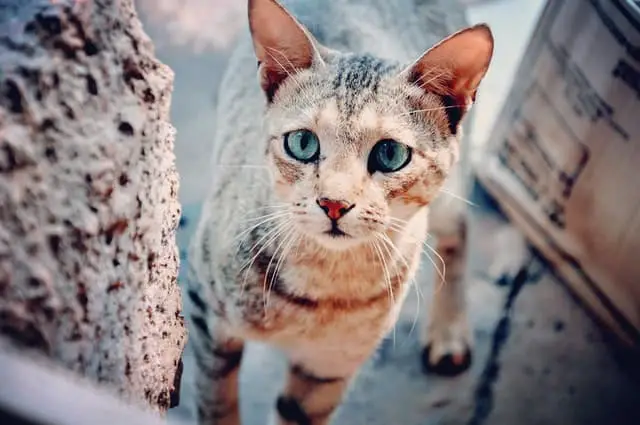
You and your cat have been living together for many years and you trust each other. Now that it is older you cannot fail them. As your cat ages, you will have to pay more attention to its needs and take care of them with all the love in the world. At Petlifey, we explain how to care for an elderly cat.
Signs of old age in a cat

First of all, know how you can identify the signs that a cat is old. When your very old cat finds it difficult to climb to its favourite places or refuses to do so, it is because it is getting older.
The cat will sleep more than usual and, when awake, will move slowly and with some stiffness. However, they will not be as prone to arthritis and low back pain as dogs and will retain their agility for a long time.
Although it is not easy to notice it, because it is used to a routine, your cat will begin to lose visual and auditory acuity as it becomes old. It is advisable to bring your hand closer to them so that it can see it before taking it and calling him before approaching them.
You may also start to have a number of incontinence, diarrhea, and constipation problems. Some are due to kidney dysfunction or diabetes, and others are part of the aging process.
For incontinence and diarrhea, the vet should determine the cause and treat it. In case of constipation, it can recommend a supplement, such as a laxative, and suggest that you include more oil in the diet. Do not do it until you know what type and how much oil to add. Many of the common oils deplete the cat’s vitamin stores.
If your elderly cat’s breath smells, take them to the vet. It could just be gingivitis or a decayed tooth, but it could also be a symptom of something more serious. Don’t worry if your entire teeth have to be removed.
Almost all cats continue to eat normally and are even capable of chewing the feed. Your gums become hard and do this without problems.
Caring for an older cat
When your cat gets older, you have to pay attention to its needs and take care of it with a lot of love. Here are some tips.
Try not to let your cat go outside
Thanks to dietary and medical advances, cats, like humans, are living longer and longer. However, old age varies dramatically from cat to cat.
A cat that never leaves the house, with a good diet and up-to-date on its vaccinations, will probably live longer than a cat that lives outdoors. A cat that leaves the house or a stray cat. It is not uncommon for a house cat to live 18 years or more.
Cats that live outside the home usually live 6 years, although many will die much earlier and others will live 20 years or more.
An elderly cat who lives outdoors or who goes out a lot can get skin diseases, so you will need to watch it closely and help it keep its coat clean.
You can also develop hypodermosis, a disease favoured by dirt and caused by larvae of the genus hypoderma that proliferate in feces attached to the body. If they are well cared for, neither the house cat nor the one that leaves the house will contract this parasite.
Watch your weight and diet
Pay special attention to the weight of your cat if it is older. At this stage, being overweight does not suit you at all, as it can increase your breathing difficulties or even movement.
You may mistakenly believe that it is too thin because the skin hangs down and the vertebrae are very prominent. Do not worry. It is something perfectly natural.
In fact, you should reduce her food rations as she ages and, if your cat is a glutton, provide her on a low-fat diet. Your vet will help you at this point.
Daily combing or brushing
Comb or brush your elderly cat daily and very delicately, even if they have short hair. As you do this, run your fingers over her body to see if she has developed a lump or tumor.
During the old age of feline pets, many tumors are benign, but it is better to have this verified by the vet. If it were a malignant tumor, it is better to know so that the sooner the better.
Keep it warm
It is important that your old cat is warmly dressed. If she lives in a very cold climate, consider buying her even cat pajamas.
Euthanasia
When your cat can’t drink or eat on its own and it doesn’t feel like doing anything anymore, it’s time to consider what’s best for them. The answer is to euthanize them.
The outdoor cat and the stray cat will wander away from the colony to die alone, but your house cat doesn’t have that option.
The decision to perform a painless euthanasia is a difficult one. It is not only about losing a good friend, but that feelings of guilt may assail you. Think that you are acting properly and you are going to end your cat’s suffering in the most humane way possible.






